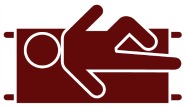From the Seattle P-I:
Known as "cardiocerebral resuscitation," or CCR -- that method has
tripled survival rates and dramatically decreased brain damage in
Arizona adults rescued by paramedics after suffering sudden cardiac
arrest.Sudden cardiac arrests that occur out of hospitals kill more than
450,000 Americans every year -- second only to all cancers combined.Survival
rates from performing traditional CPR -- combining chest compressions
with mouth-to-mouth breathing or mechanical ventilation -- have
remained dismal for decades, at 5 percent or lower, whether performed
by trained paramedics or untrained bystanders.Paramedics using the old CPR -- which calls for mechanical
ventilation and electric shock before doing chest compressions -- were
able to save only 1.8 percent of cardiac-arrest victims.But
after training in the new CCR technique -- which requires 200 chest
compressions first, then a single shock followed by 200 more chest
compressions, with delayed ventilation -- the survival rates jumped
threefold, to 5.4 percent.The figure measures survival of the patient to actual discharge from the hospital, not just getting to the hospital.


No comments:
Post a Comment